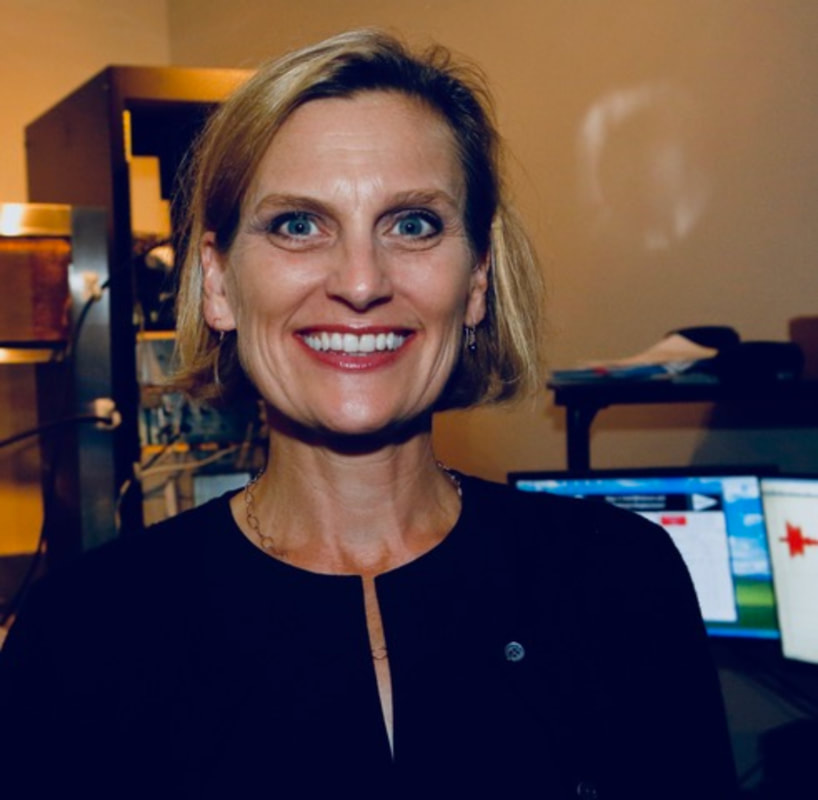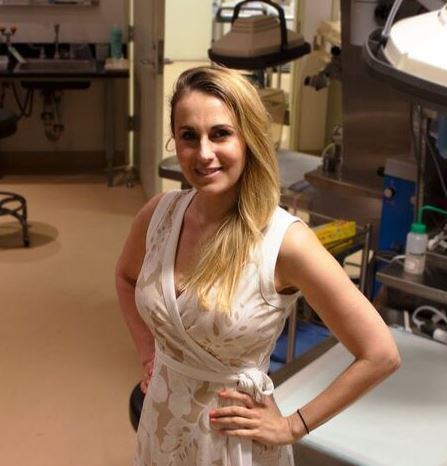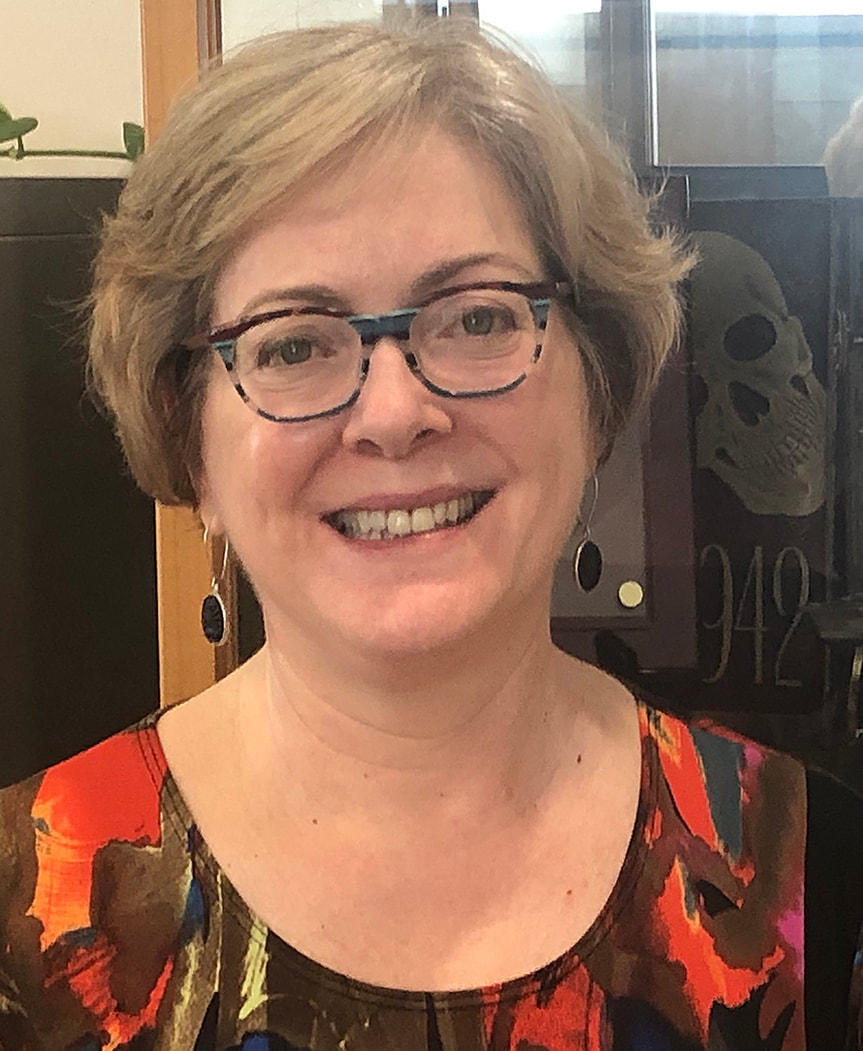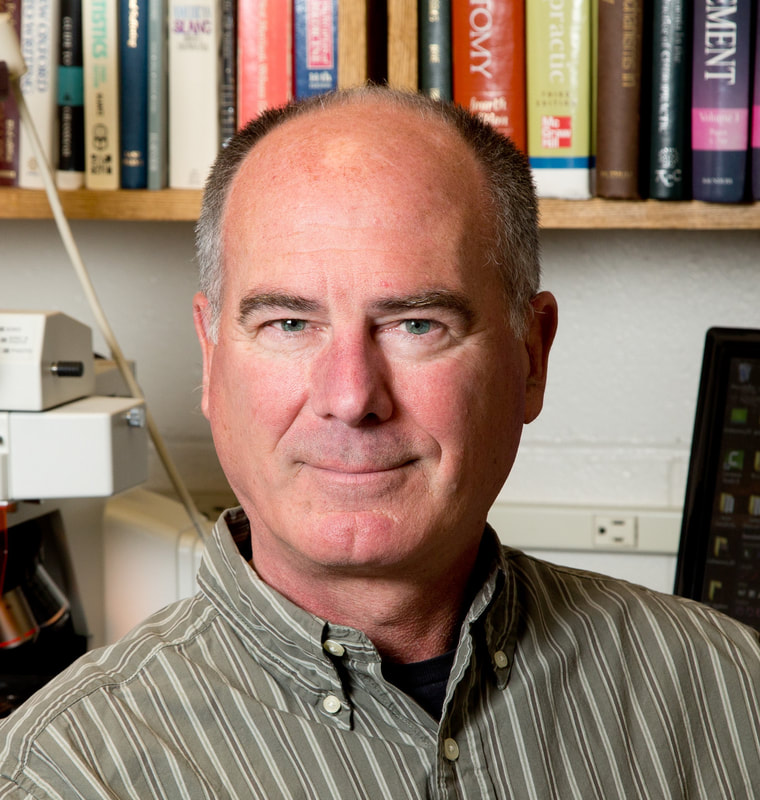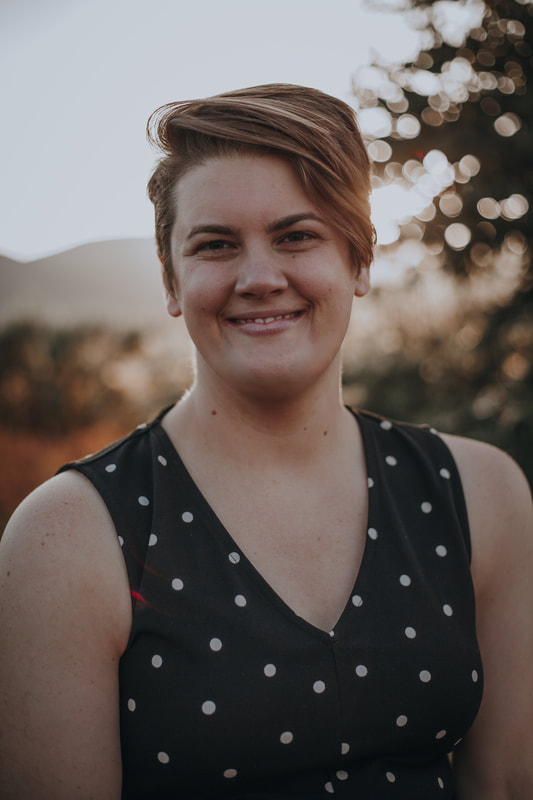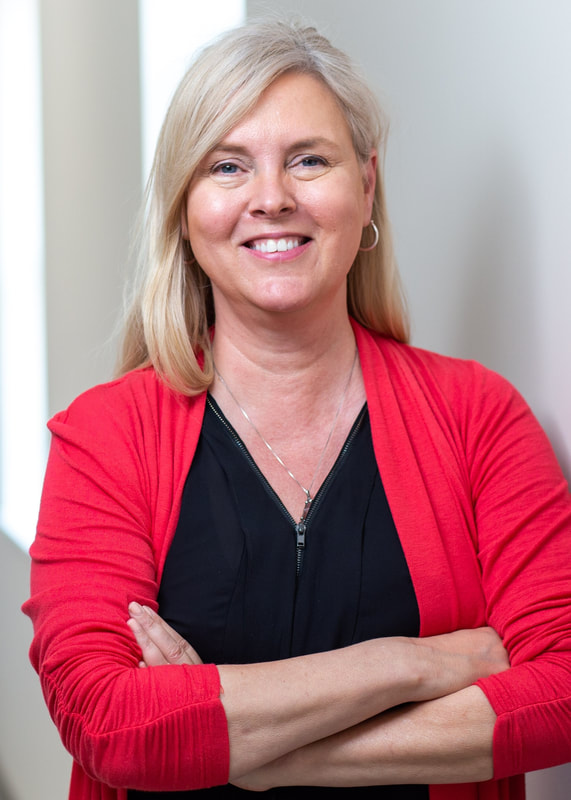Ellen Lumpkin, PhDEllen Lumpkin is part of the Molecular & Cell Biology faculty in the Division of Cell & Developmental Biology and Helen Wills Neuroscience Institute at the University of California, Berkeley. Her laboratory studies the somatosensory system with the goal of discovering the molecular, cellular and circuit mechanisms that encode environmental stimuli into neural signals. A primary focus of the lab is to elucidate mechanisms of touch and pain. Email: [email protected].
|
Greg Gerling, PhDGreg Gerling has been a member of the faculty at the School of Engineering and Applied Science since 2005. Before joining U.Va., he earned his Ph.D. in the Department of Mechanical and Industrial Engineering at the University of Iowa. He served as co-chair of the IEEE Haptics Symposium in 2018 and 2020, and associate editor-in-chief of the IEEE World Haptics Conference in 2017 and 2019. His research interests are related to the fields of haptics, computational neuroscience, human factors and ergonomics, biomechanics, and human–machine interaction. His primary domain is that surrounding human health. His group builds and analyzes computational models using solid mechanics, differential equations and statistical techniques, designs and prototypes devices using computer vision, electronics, software and silicone-elastomers, and conducts psychophysical experiments. He has a substantial background in the skin and receptor physiology related to touch sensation – specifically mechanosensitive peripheral afferents. At present, his work is investigating cutaneous and proprioceptive cues that convey an object’s softness, as well as the neural basis of social and emotional touch. This work is done in close collaboration with neuroscientists, in human and mouse models. A thorough understanding of tactile cues in early, peripheral stages is key to deciphering the whole perceptual chain, as well as engineering sensors and human-machine interfaces. Email: [email protected]
|
Victoria E. Abraira, PhDVictoria Abraira is an assistant professor in the Cell Biology and Neurosceince Department at Rutgers University. She received her PhD in Neuroscience from Harvard University in 2009 and completed a postdoctoral fellowship with Dr. David Ginty at Harvard Medical School in 2017. Victoria’s research uses mouse genetic strategies to understand the molecules, neurons and circuits critical for the sense of touch. She is currently funded by the National Institute of Neurological Disorders and Stroke, the Pew Charitable Trust, Whitehall Foundation, and the NJ Commission on Spinal Cord Research. Email: [email protected].
|
Mary Barbe, PhDDr. Barbe is a Full Professor in the Center for Translational Medicine at Lewis Katz School of Medicine, Temple University, and has been appointed as a Fellow of the American Association of Anatomists as well as the American Society for Bone and Mineral Research. Dr. Barbe is an internationally known tissue injury and pain expert. Using a unique operant rat model of repetitive overuse injury of the upper extremity that was developed in her laboratory, she has examined the effects of repetitive and forceful work tasks on musculoskeletal and nervous system pathophysiology, focusing on injury, inflammation and fibrosis, and how these processes induced tissue degeneration and sensorimotor dysfunction. She is currently investigating effective interventions, including the use of soft tissue manipulation. She has over 210 peer-reviewed publications, and a new book for Wiley on Musculoskeletal Disorders: The Fatigue Failure Mechanism. She is currently funded by the National Institute of Neurological Disorders and Stroke and the National Institute of Health’s National Institute of Arthritis and Musculoskeletal and Skin Diseases; and until recently by theNational Center for Complementary and Integrative Health. Email: [email protected].
|
Geoff Bove, DC, PhDDr. Geoffrey Bove is a pioneer CAM biomedical researcher and has more than 30 years of clinical experience as a manual therapist. He was the first person considered “post-doctoral” by NIH by virtue of a chiropractic degree and the only chiropractor appointed to the Harvard Medical School faculty. His research has focused on the effects of inflammation on nerves and axons, which has implications for many disorders that are commonly seen in manual therapy practice. Dr. Bove's current projects are focused on the efficacy and mechanisms of manual therapy for repetitive motion disorders and post-irradiation fibrosis. He currently has a private laboratory, funded by the NIH. Email: [email protected].
|
Laura Case, PhDLaura Case, PhD, is an Assistant Professor in the Department of Anesthesiology at UC San Diego. She received her PhD in Psychology and Cognitive Science from UC San Diego in 2013 and completed a postdoctoral fellowship studying affective touch and pain with Dr. Catherine Bushnell at the National Center for Complementary and Integrative Health (NCCIH), NIH. Laura’s research uses brain imaging, noninvasive brain stimulation, and pharmacologic manipulation to test brain mechanisms involved in painful and pleasant touch perception in healthy individuals and individuals with chronic pain. Other research interests include psychological and neural mechanisms of mind-body therapies and placebo. Email: [email protected]
|
Mary Loghmani, PT, PhD, FNAPM. Terry Loghmani, PT, PhD, FNAP, is an Associate Professor in the School of Health and Human Sciences (SHHS), Department of Physical Therapy, at Indiana University (IU) in Indianapolis. She is a physical therapist, certified orthopedic manual therapist, certified massage therapist, and Distinguished Fellow and Scholar of the National Academies of Practice. Her research focuses on integrative health and interprofessional care, medical device development, and exploring the effects of physical therapeutics, in particular soft tissue manual therapy, on healing, repair, and regeneration in neuromusculoskeletal pain conditions. Email: [email protected].
|
Hakan Olausson, PhDDr. Olausson is a Professor of Clinical Neuroscience, Linköping University. His research in neurophysiology has demonstrated that humans possess a system of c-fibers that signal the pleasant aspects of touch. Recently, he discovered that humans possess a system of a-beta fibers that signal mechanical pain. Email: [email protected].
|
Proudly powered by Weebly

